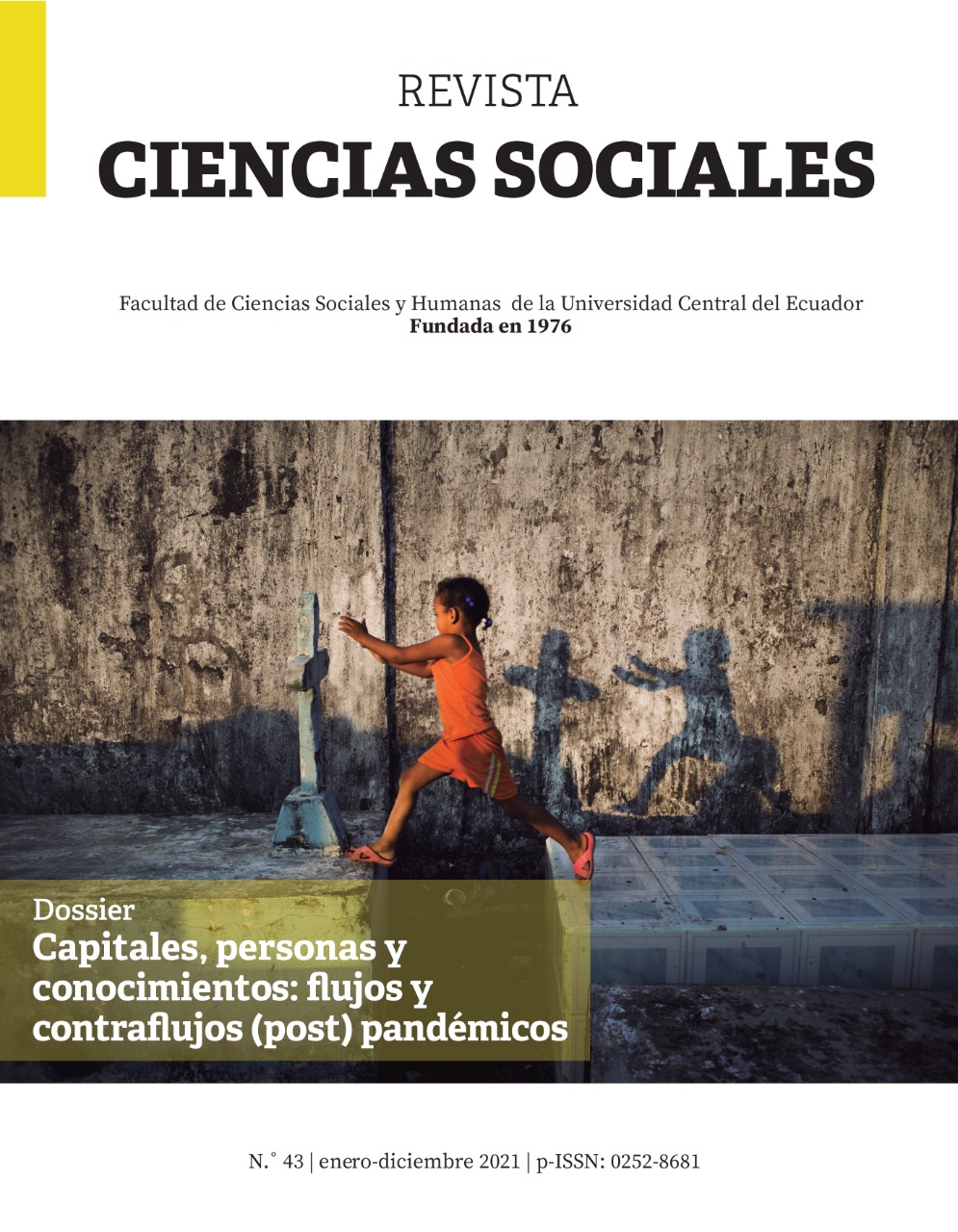USE VALUE VERSUS PRAXIS
On Bolívar Echeverría, Karl Marx, Aristoteles and Adolfo Sánchez Vázquez
DOI:
https://doi.org/10.29166/csociales.v1i43.3520Keywords:
Naïve progresivism (critique of), natural form, consumption/production, concept of praxis (concrection of)Abstract
Bolívar Echeverría’s interest in the cultural aspects of ‘capitalist modernities’ should not be understood as an idealist dilution of the Marxian analysis of society, but rather as an effort to develop a radical critique of the powerful idealist and ethnocentric residues and naïve faith in progress that exist among various currents of contemporary Marxist and materialist thought. Echeverría attempts to save Marx from such interpretations. This attempt at a materialist concretion of the concept of use value production, determined in each case according to cultural differences, and the concomitant critique of the pseudo-universalist concept of the subject – which is, de facto, ethnocentric – cannot but entail consequences for the concept of praxis. Human praxis, too, must be understood in each case within its historical, cultural, and geographical context; it cannot really be understood within the framework of a form of thinking which apparently remains universal.
Downloads
Downloads
Published
How to Cite
Issue
Section
License
Copyright (c) 2021 Stefan Gandler

This work is licensed under a Creative Commons Attribution-NonCommercial-NoDerivatives 4.0 International License.
Política de acceso abierto
La revista Ciencias Sociales adhiere al modelo Acceso Abierto en el que los contenidos de las publicaciones científicas se encuentran disponibles a texto completo libre y gratuito en Internet, sin embargos temporales, y cuyos costos de producción editorial no son transferidos a los/las autores/as.
En ese sentido, no existe costo alguno para los/as autores/as en el envío o durante el proceso editorial, defendiendo el derecho a la información con equidad e iguales oportunidades de acceso.
Licencia y derechos de autor/a
Los autores conservan todos los derechos de publicación del artículo y conceden a la Revista Ciencias Sociales una licencia no exclusiva, intrasferible y sin regalías por duración ilimitada para su reproducción, distribución y comunicación pública a nivel mundial bajo una Licencia Creative Commons Atribución 4.0 Internacional (CC BY NC 4.0)


